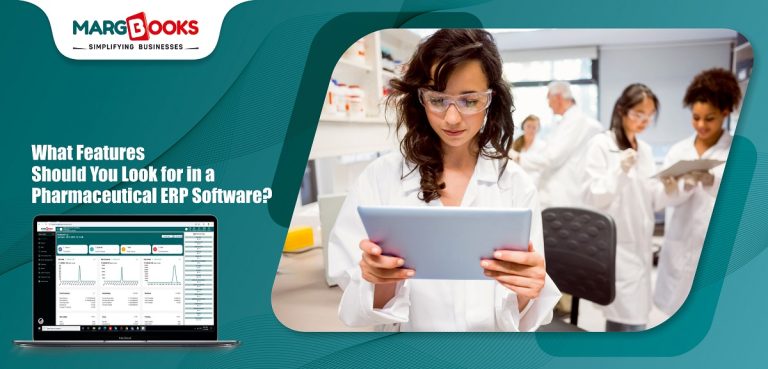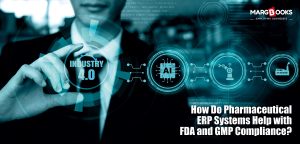In today’s fast-paced pharmaceutical industry, managing operations efficiently is crucial for maintaining profitability and regulatory compliance. Pharmaceutical companies, whether they are involved in manufacturing, distribution, or retailing, need to implement robust systems to streamline their processes.
One such system is Pharmaceutical ERP (Enterprise Resource Planning) software, which integrates various business functions into a single unified platform. This blog will delve into the key features you should look for in a Pharmaceutical ERP software, with a special focus on its role in pharmacy billing software and pharma billing software.
Understanding Pharmaceutical ERP
Pharmaceutical ERP software is designed specifically to meet the needs of the pharmaceutical industry. It helps companies manage a variety of processes, from inventory control and supply chain management to manufacturing and regulatory compliance. Given the complexity and the need for precision in this industry, a comprehensive ERP system is indispensable for increasing operational efficiency, improving data accuracy, and ensuring compliance with industry standards.
Whether you are managing a large-scale pharmaceutical manufacturing plant, a drug distribution business, or a retail pharmacy, the right ERP system can significantly reduce operational bottlenecks and improve overall productivity.
In this blog, we will explore the core features of an effective Pharmaceutical ERP system and why it is crucial for businesses in the pharmaceutical industry. Let’s also take a closer look at how pharmacy billing software and pharma billing software integrate within the ERP system to streamline billing and financial management.
Key Features of Pharmaceutical ERP Software
Choosing the right pharmaceutical ERP system can make or break your business operations. To help you make an informed decision, here are the key features that should be included in any Pharmaceutical ERP software:
1. Regulatory Compliance and Reporting
Pharmaceutical businesses are highly regulated, and non-compliance can result in severe consequences, including fines and legal action. An effective pharmaceutical ERP system should include features that ensure adherence to global and regional regulations, such as GMP (Good Manufacturing Practice), FDA (Food and Drug Administration) guidelines, and other industry-specific standards.
- Automatic Regulatory Reporting: The software should automatically generate and submit regulatory reports required by local or international health authorities.
- Audit Trail: It should track all changes made to data, providing a clear audit trail for compliance verification.
2. Inventory Management and Control
Effective inventory management is crucial for pharmaceutical companies due to the large number of products, strict shelf-life controls, and the need for timely distribution. An ERP system must offer advanced inventory management capabilities, such as:
- Real-Time Stock Tracking: The software should provide real-time visibility into stock levels, batch numbers, and expiry dates.
- Automatic Replenishment: It should automatically trigger the reordering of stock based on predefined thresholds to avoid stockouts.
- Lot and Serial Number Tracking: This helps maintain the traceability of products from production to the end customer, ensuring product safety and quality control.
3. Pharmacy Billing Software Integration
One of the critical components of a pharmaceutical ERP system is pharmacy billing software. This software helps streamline the billing process by automating invoicing and payment management, reducing errors, and ensuring faster billing cycles.
Key features of pharmacy billing software include:
- Automated Billing and Invoicing: The ERP system should automatically generate bills based on prescriptions, sales orders, or deliveries.
- Payment Processing: It should support multiple payment methods, including cash, credit, and online payments, while ensuring accurate tracking.
- Customer Account Management: The software should maintain detailed customer profiles, tracking sales history, payment status, and outstanding balances.
4. Pharma Billing Software for Accurate Financial Management
Pharma billing software is a specialized billing module within the ERP system tailored for pharmaceutical businesses. It ensures the seamless integration of sales, inventory, and accounts receivable, providing accurate and timely financial data.
Important features of pharma billing software include:
- Tax Calculation: The software should be capable of calculating taxes based on the applicable tax laws (GST in India, for example) for each transaction.
- Discount and Price Management: Pharma billing software should offer the flexibility to manage discounts, price variations, and special offers, which are common in the pharmaceutical sector.
- Sales and Payment Reports: The system should generate detailed reports of sales, payments, and outstanding receivables, helping businesses track their financial health.
5. Supply Chain Management
The pharmaceutical supply chain is complex and requires precise coordination between manufacturers, suppliers, wholesalers, and retailers. A good ERP system should have robust supply chain management features, such as:
- Supplier Management: Track supplier performance, manage purchase orders, and ensure timely deliveries.
- Demand Forecasting: The system should analyze historical data to predict demand for pharmaceutical products, helping in better production and procurement planning.
- Shipment Tracking: Real-time tracking of shipments ensures that products are delivered on time, and any delays or discrepancies can be addressed promptly.
6. Quality Control and Assurance
Given the critical nature of pharmaceuticals, quality control is non-negotiable. An ERP system must include features that facilitate quality assurance throughout the manufacturing and distribution processes. Some key features to look for include:
- Batch Tracking: Keep track of every batch’s production, testing, and distribution details.
- Quality Checks: Integrate quality checks into the manufacturing and distribution process to ensure that all products meet the required standards.
- Regulatory Documentation: Generate and store documentation for each product batch, which is essential for compliance during audits.
How Margbooks Can Improve Your Pharmaceutical ERP?
One such solution that combines powerful ERP functionalities with seamless billing features is MargBooks, a comprehensive ERP solution designed for businesses in the pharmaceutical sector. Margbooks offers a suite of tools that integrate pharmacy billing software and pharma billing software to streamline financial operations while ensuring regulatory compliance.
Benefits of Margbooks:
- Easy Billing and Invoicing: Margbooks simplifies the billing process by automatically generating invoices based on real-time data. This helps businesses in managing transactions seamlessly, reducing manual errors.
- GST Compliance: It ensures that all bills and invoices comply with Indian GST regulations, making tax filing and reporting much easier.
- Inventory Management: Track and manage stock levels in real time, reducing wastage and ensuring that only quality products reach your customers.
- Cloud Integration: Being cloud-based, Margbooks allows you to access your business data from anywhere, ensuring flexibility and convenience.
Conclusion
Choosing the right Pharmaceutical ERP software is a crucial step in modernizing your pharmaceutical business operations. By selecting an ERP system with features like regulatory compliance, inventory management, and integrated pharmacy billing software or pharma billing software, you can ensure smooth operations, increase productivity, and improve financial management.
Incorporating solutions like Margbooks can further simplify your business processes, providing a comprehensive and reliable ERP solution tailored to the unique needs of the pharmaceutical industry. So, whether you are running a large manufacturing unit or a retail pharmacy, investing in a robust Pharmaceutical ERP system will help future-proof your business and keep you ahead of the competition.




